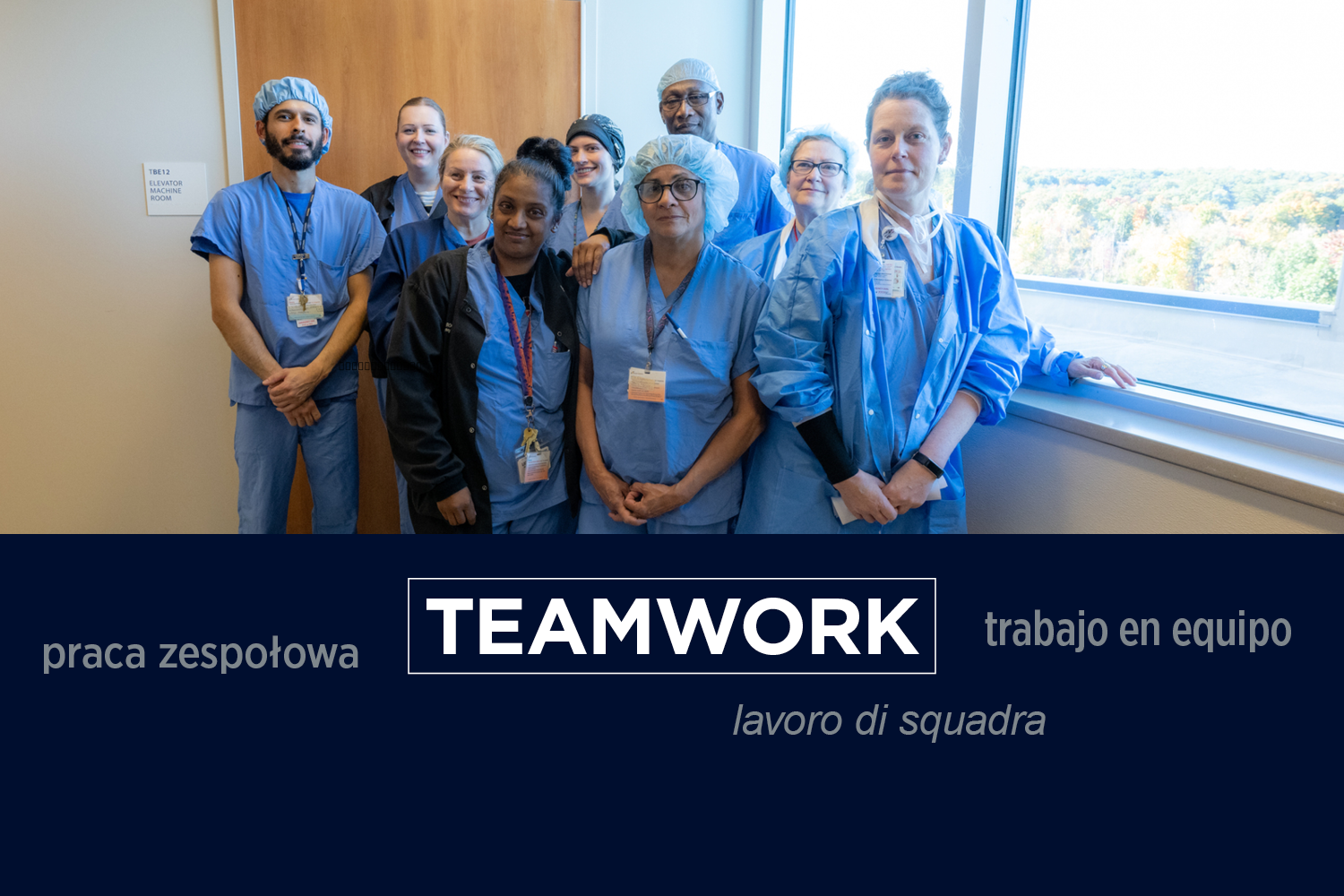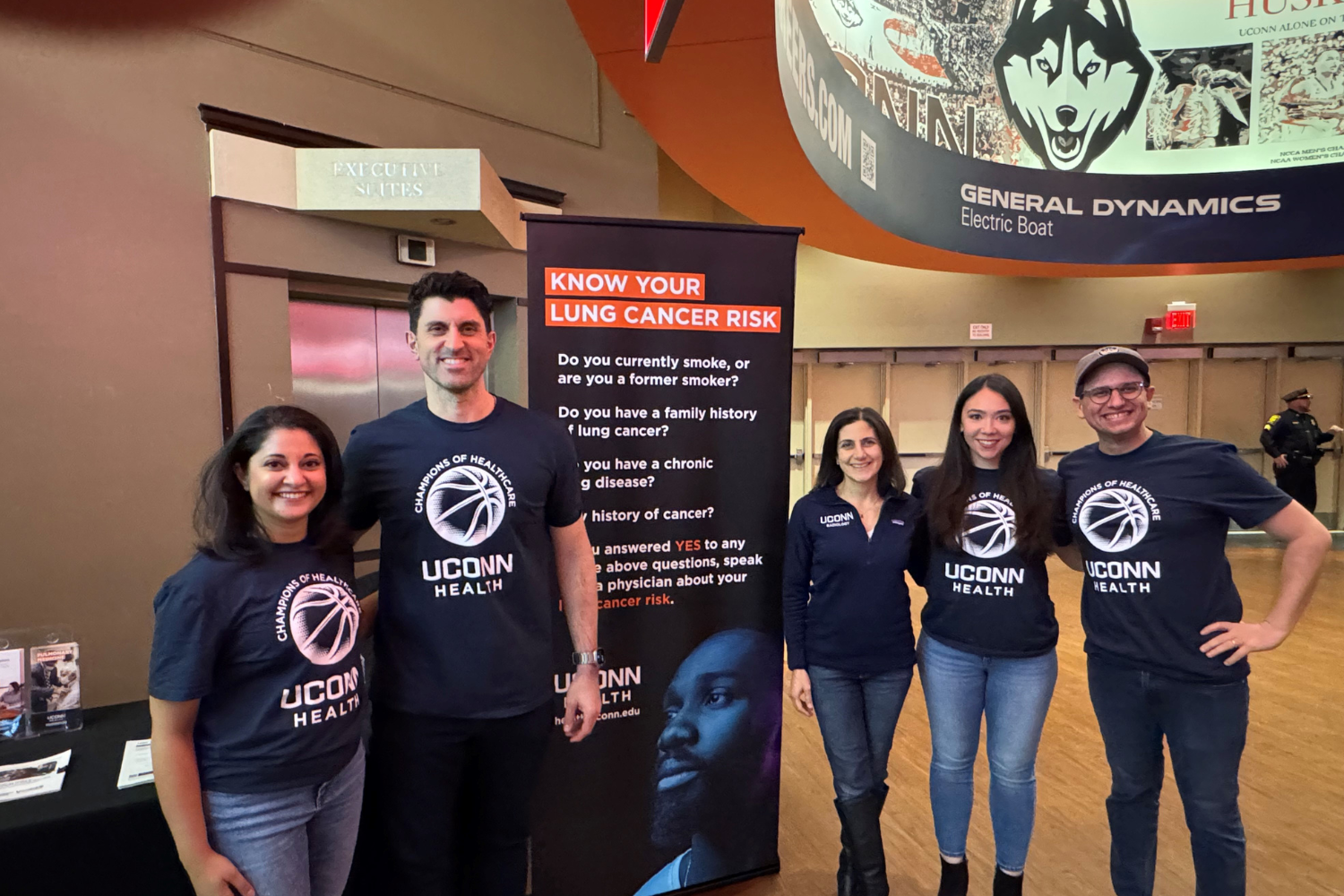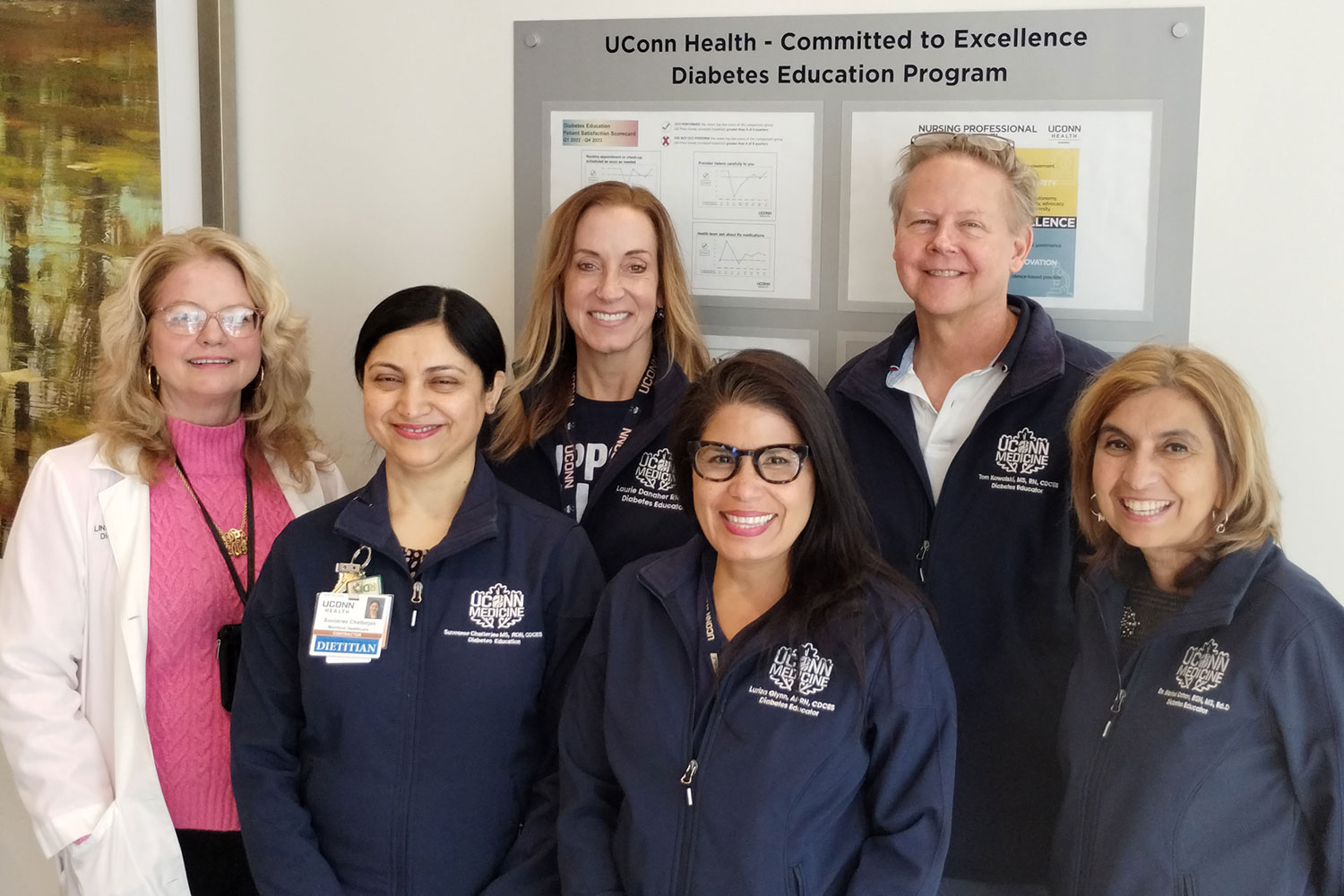A Connecticut-based child care center and UConn’s Institute for Brain and Cognitive Sciences (IBACS) have partnered to offer a new fellowship to graduate students who have recently had a child, an award intended to make it easier for new parents to return to research.
Nearly half of women scientists leave full-time research after having their first child, according to a recent paper in Nature. About 50 percent of the women who leave cite family-related reasons for doing so. And although men leave at lower rates than women after the birth of their first child, about the same percentage of men scientists also cite family reasons for leaving academia. Having a child during graduate school can be particularly difficult.
“The intent is to relieve the burden of child care cost for a little while, give graduate students time to try on being a mother or father in science,” before they have to make a tough decision, says Stormy Chamberlain, associate director of IBACS and manager of the Educational Playcare Fellowship program. The fellowship is named after the child care center that is sponsoring it.
Helping students complete their educations was one of the motivations that led Educational Playcare to start this fellowship. Kacie Wittke, an assistant clinical professor in the Department of Speech, Language, and Hearing, says it’s a welcome program.
“Simply not feeling like I had the financial abilities to remain a full-time doctoral student, have child care, and contribute to my family” motivated Wittke to accept a position as a clinical faculty member before she completed her Ph.D. Wittke is now completing her dissertation while also working full time, but has pushed her completion date back by at least a year.
“The financial burden of child care is so high, it’s like a having a second mortgage!” Wittke says. According to a national survey by The Boston Globe, the average cost of full-time day care in Connecticut is $12,937 per year.
Many researchers say they wait until they have a faculty position before starting their families. But graduate school can easily take six years, and then short-term post-doctoral positions and the desire to get established in a new position can require several more, so that often researchers are in their mid-30s before they feel settled. And that doesn’t leave much time for having children.
“There’s always going to be a reason to wait,” says Meaghan Perdue, a graduate student in developmental psychology who gave birth to a child in November. “You shouldn’t put off something that’s a priority. I want other students to know that it’s doable,” to complete their graduate education and be a parent at the same time.
Perdue’s husband works as a personal trainer, and his paycheck varies from month to month depending on how many hours he works. So far they’ve been lucky enough to have family help out and care for their child, but they hope to line up part-time day care this summer. “Ten or 20 weeks of paid-for day care would make a huge difference” in her family finances, Perdue says. “It would allow us to relax and breathe, and know day care isn’t going to totally break us.”
IBACS and Educational Playcare hope their example will open a broader conversation about support for parents in research, says Gerry Pastor, one of the owners of Educational Playcare.
“As a working parent, you need good child care, whether you’re a doctor, a lawyer, a plumber, or a researcher,” says UConn President Susan Herbst. “We are so glad Educational Playcare is our partner, both for this fellowship and for the greater UConn community.”
There are 40 UConn families who already have a child in the Educational Playcare program, which has multiple locations around the state. Pastor notes that his wife and co-owner, Jane Porterfield, has a master’s in early childhood education and is deeply interested in cognitive development. Partnering with IBACS on the fellowship was a good fit. “We have a huge respect for other educators and educational institutions,” Pastor says. “This is helping parents get an education.”
The fellowship will be open to any graduate student affiliated with IBACS who has had or is expecting a child that calendar year. Educational Playcare will award 10 weeks of free day care, currently valued at $3,200, which can be used at its Downtown Storrs location. IBACS will match that award with $3,200 which can be used for a further 10 weeks at Educational Playcare or any other day care of the student’s choosing.
The fellowship will be awarded to up to two students per year. IBACS is now accepting applications; full details are on the Institute’s website.
“If we care about diversity, we should add whether or not you have a child to that,” says IBACS director Gerry Altmann. “It’s a tiny price for the institute compared to the benefits. If we lose a student because she’s become a mother and feels she can’t do it, we’ve lost something substantial.”



